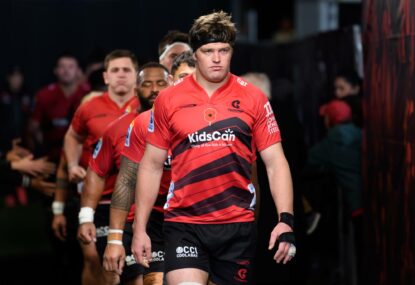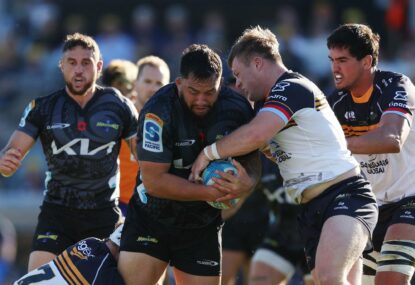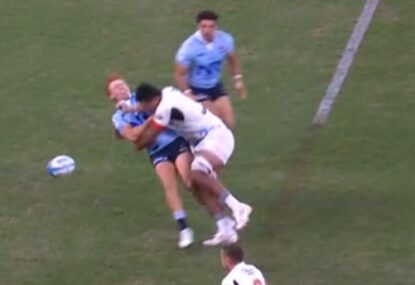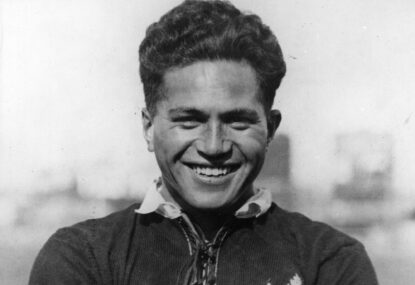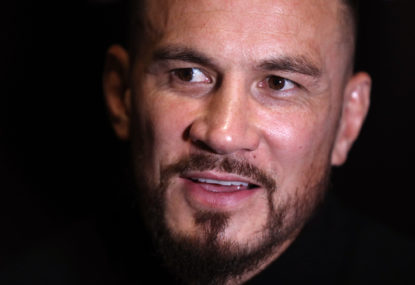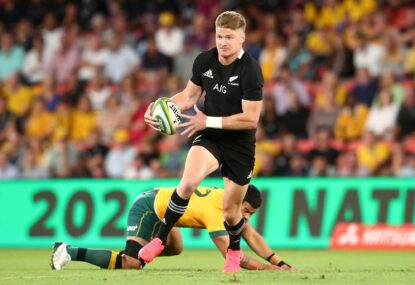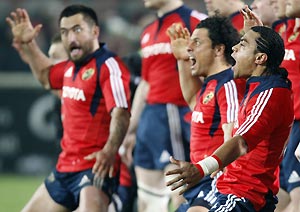
The magician of Munster will see if he can work his magic on the Irish national team after weaving his sorcery on the Red Stags for so many years. Astonishingly, when first officially appointed, he was rumoured to be in the stands at Test matches against the All Blacks and the Wallabies.
Like England did, why send your national team into the cauldron of Southern Hemisphere rugby without a first choice coach?
Why sack the old if the new is not ready to immediately take control?
This is an Irish team where, realistically, it is hard to tell what exactly the problem is. Take, by contrast, the All Black team.
They are, and have always been one of the strongest nations. But with these impressive records and remarkable history, they should have won more World Cups, but have not.
Add to this the expectation of a nation, and this is why the All Blacks have a bit of an identity crisis when it comes to whether or not they are the greatest team of modern times.
What of Ireland rugby?
Over twelve months ago, they were entering the World Cup as the dark horses. They had recently toured New Zealand and had given the All Blacks in their prime a close run. They had come close to winning Six Nations and had recorded three Triple crowns in four years (victory over the other home unions).
With Leinster and Munster club rugby being strong, and having world class players such as Brian O’Driscoll, Paul O’Connell and Ronan O’Gara, this was a team that was probably the strongest that the Emerald Isle had ever compiled.
From 2002, when Ireland compiled ten straight victories – their best ever run – this was a team becoming a world power.
This culminated in the year before the World Cup, where the Irish recorded a remarkable triumvirate of victories – over the Wallabies, the Springboks, and then inflicted the heaviest defeat ever on the Pacific Islanders (a team that is the Pacific hybrid of the British Lions).
Despite starting 2007 well, winning all of their Six Nations games except for a narrow three point loss to the French, cracks started to appear. A weaker Ireland team toured Argentina – a mistake to send a depleted team in a World Cup year – and were duly beaten twice.
They then played Scotland in a World Cup warm up.
Scotland, whom Ireland had not lost to since 2001 and had established a seven game winning streak over, were their next foe.
However, this was a powerful looking Scots team, and they over-powered the Irish pack to record a remarkable 31-21 victory. The Irish were then fortuitous to beat the Italians, who again overwhelmed the Irish in the forwards to lose by only three points.
The World Cup was then a disaster.
Realistically, outside of the All Blacks, this was the biggest failure of any team. Ireland struggled past Namibia and Georgia, third tier nations – and both outside the Top 15 of the world.
They were then exposed by the French and Argentineans, both units inflicted heavy defeats on the Irish to send them crashing out of the World Cup.
2008’s Six Nations was not much better, with only wins against Italy and Scotland propping them up to be fourth on the championship table – their worst finish in nearly ten years.
This then resulted in Eddie O’Sullivan falling on his sword, after having his contract extended through to 2012 in the World Cup year, as well as a clause that would have given him the option to take leave as British Lions coach in 2009 (a position that many, two years ago, thought he would be offered).
Enter Declan Kidney.
The just finished Munster coach took the premier Irish domestic team to four Heineken Cup Finals, claiming the Northern domestic championship in 2006 and 2008. He also enjoyed a brief stint with Leinster, and was O’Sullivan’s assistant in 2002 through to 2004. He also has a considerable record with the Irish youth teams – having coached the Ireland Under 19’s to World Cup glory in 1998.
He has taken control of a team that had enjoyed their greatest ever period of success, being ranked as the third strongest nation in world rugby just over two and a half years ago, but is now languishing in eighth position.
Luckily for both Kidney and Ireland, Irish rugby is not weak as some may perceive.
On the back of Munster’s success, both at the HC and against the All Blacks recently, the Irish provinces look as good as they have in recent years.
The problem for Kidney now is that he takes control of the most settled team in world rugby, but with little talent underneath the nation’s elite fifteen.
Even with the IRFU creating the “High performance select group” – which was designed to assist fringe player’s transit into the national team – we do not see world class players entering the fray, with the exception of maybe Stephen Ferris and Luke Fitzgerald.
The 55-0 thrashing of Canada proved little, and despite expectations being typically high, they continue to be unable to defeat the All Blacks. The win against Argentina showed grit and tactical mettle, but Kidney has now teethed and must succeed in the Six Nations.
Ireland’s first match of the Six Nations will be at Croke Park, hosting Les Bleus.
It will be the 100th meeting between these two nations. Ireland won the first clash 19-8 at Dublin and proceeded to win the first six matches between the two sides.
However, the Irish are in the midst of a seven game losing streak against the French, dating back to 2003. If they are to embark on a new path this year, this game will be the indicator.






























































































